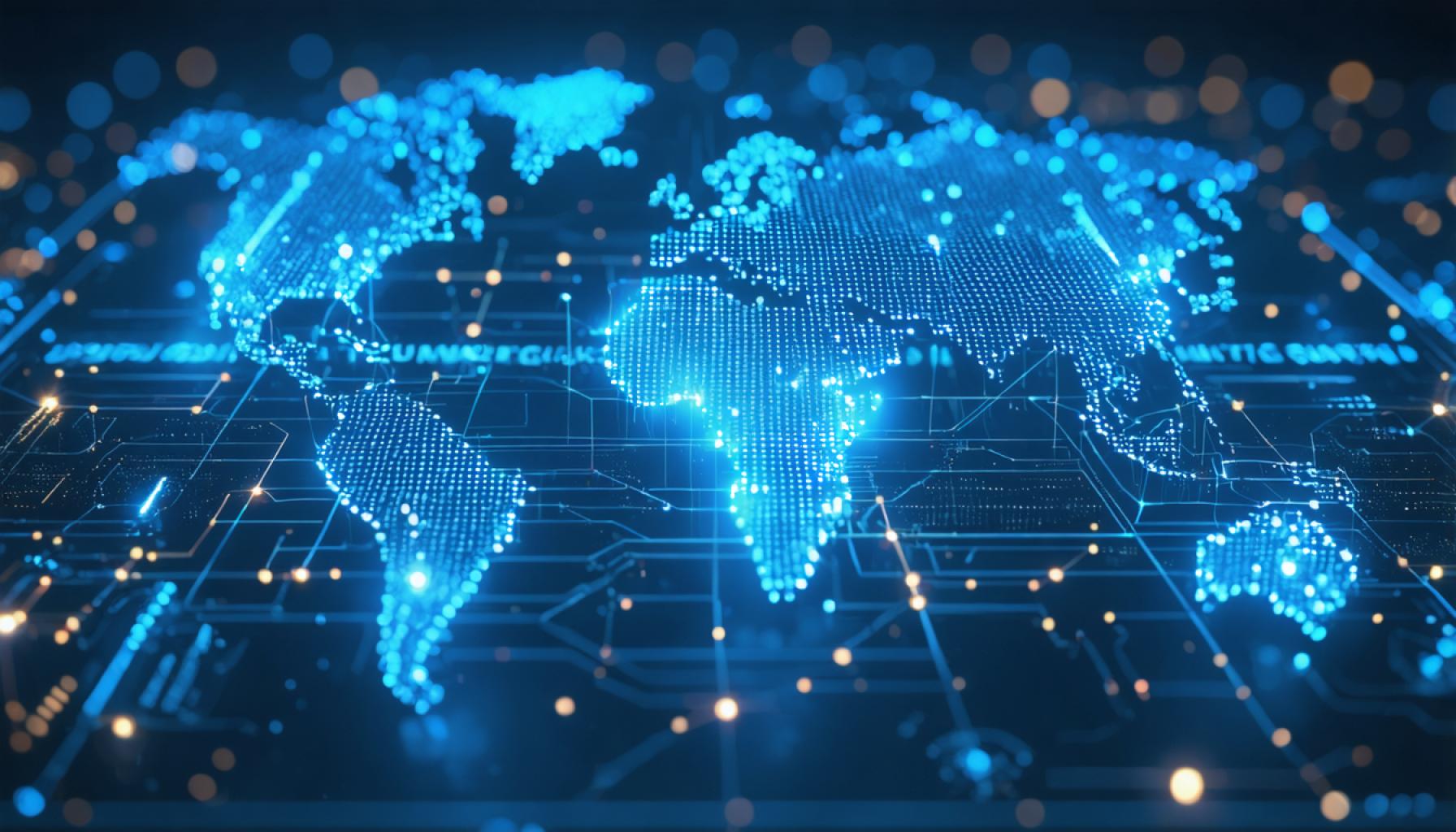- AI tools like GPT-3 are transforming global communication and translation by understanding complex language patterns and cultural nuances.
- GPT-3’s vast scale at 175 billion parameters supports profound translations, enabling seamless cultural integration in translations.
- The rise of AI-driven translation is fostering global business expansion, educational access, and changes in job roles, particularly in the translation industry.
- Privacy and ethical considerations are critical as AI tools process extensive data, necessitating vigilant handling of these concerns.
- The ongoing evolution of AI invites a reflection on its integration into daily life while ensuring societal needs and ethical standards are met.
Artificial intelligence is rapidly altering the landscape of global communication, especially with revolutionary tools like GPT-3. This powerful AI language model, known for crafting eerily human-like text, has also emerged as a surprising force in the realm of translation. Imagine effortlessly breaking language boundaries with a model that grasps over a dozen languages, not just swapping words, but weaving context, nuances, and tone into its translations.
GPT-3’s strength lies in its colossal scale—175 billion parameters strong, allowing a profound understanding of complex language patterns. This enables translations that maintain cultural essence and true intention, far exceeding the limitations of traditional tools. The implications are profound, suggesting a future where seamless, real-time translation becomes a norm, reshaping industries and societies.
Global Business Boom: Companies can now dive into international markets rapidly, bridging cultural divides and strengthening global ties. AI-driven translations open diverse business opportunities worldwide.
Educational Revolution: Language barriers dissolve as AI grants access to educational treasures from textbooks to lectures, fostering global knowledge sharing and equity in learning.
Job Landscape Shift: As AI proficiency surges, questions arise about the future employment of translators. While challenging, this also introduces opportunities for roles that blend AI capabilities with human insight.
Privacy and Ethics: With AI handling vast data, privacy and ethical concerns loom large. Ensuring ethical use and safeguarding personal data are paramount challenges we face.
As AI like GPT-3 continues to evolve, it’s essential to reflect on balancing its boundless possibilities with societal needs. Are we ready to embrace the transformations this technology promises? The journey toward an AI-integrated reality has begun—are you prepared?
Unleashing AI’s Potential: Are You Ready for the Future of Global Communication?
How is AI Transforming Language Translation?
AI, particularly advanced models like GPT-3, is revolutionizing language translation by offering high-context, nuanced, and culturally sensitive translations. Unlike traditional translation tools that often miss contextual subtleties, GPT-3 leverages its massive 175 billion parameters to provide translations that retain the essence and intent of the original text. This advancement promises a future where real-time, seamless translation becomes a reality, enhancing communication across industries and societies globally.
What Are the Implications of AI-Driven Translations for Global Businesses?
AI-driven translations significantly enhance global business operations by breaking down language and cultural barriers. This technological advancement enables companies to expand into international markets more rapidly and effectively, fostering stronger global connections. It opens the door to diverse business opportunities worldwide, allowing enterprises of all sizes to reach broader audiences and improve their global market presence. The seamless communication facilitated by AI translations empowers businesses to engage with international clients, partners, and customers in a more meaningful way.
What Are the Ethical and Privacy Concerns Associated with AI in Translation?
The integration of AI in translation raises important ethical and privacy issues. With AI systems handling vast amounts of data, safeguarding personal data and ensuring ethical use become paramount challenges. There is a critical need to establish clear guidelines and regulations that protect user privacy and promote transparency in how AI systems process and store information. Addressing these concerns is essential to maintain public trust and foster the responsible development and deployment of AI technologies in translation and beyond.
To explore more about AI and its impact, visit OpenAI or IBM for insights on their AI advancements.









